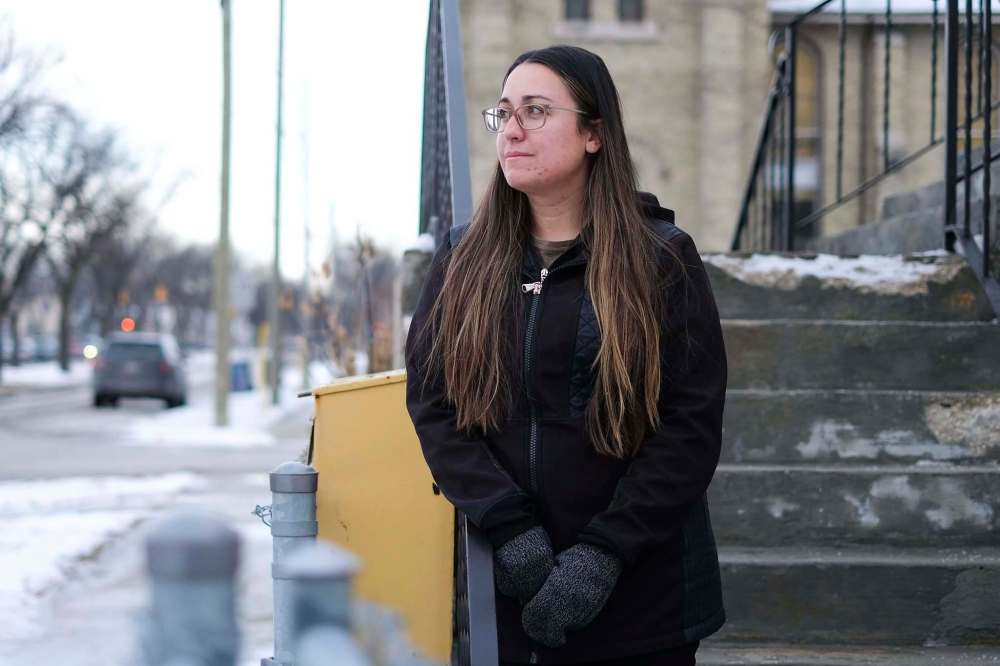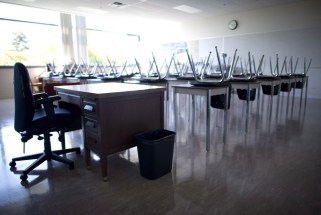A plan to find, help MIA students North End coalition program to deliver culturally sensitive education, supports to 'inactive' Winnipeg School Division kids
Read this article for free:
or
Already have an account? Log in here »
To continue reading, please subscribe:
Monthly Digital Subscription
$0 for the first 4 weeks*
- Enjoy unlimited reading on winnipegfreepress.com
- Read the E-Edition, our digital replica newspaper
- Access News Break, our award-winning app
- Play interactive puzzles
*No charge for 4 weeks then price increases to the regular rate of $19.00 plus GST every four weeks. Offer available to new and qualified returning subscribers only. Cancel any time.
Monthly Digital Subscription
$4.75/week*
- Enjoy unlimited reading on winnipegfreepress.com
- Read the E-Edition, our digital replica newspaper
- Access News Break, our award-winning app
- Play interactive puzzles
*Billed as $19 plus GST every four weeks. Cancel any time.
To continue reading, please subscribe:
Add Free Press access to your Brandon Sun subscription for only an additional
$1 for the first 4 weeks*
*Your next subscription payment will increase by $1.00 and you will be charged $16.99 plus GST for four weeks. After four weeks, your payment will increase to $23.99 plus GST every four weeks.
Read unlimited articles for free today:
or
Already have an account? Log in here »
Hey there, time traveller!
This article was published 26/11/2020 (1847 days ago), so information in it may no longer be current.
An average 400 Grade 7-12 students in the North End have been reported “inactive” during the school year for the last decade.
Despite being registered in the Winnipeg School Division, they are not actively participating at their home school and their families have not reported a move.
The WSD data (from 2009 to 2019) obtained by the Community Education Development Association indicates hundreds of students stop attending class at some point after Sept. 30, the annual head-count day in Manitoba, in any given year.
“We know the COVID pandemic has created even more stress on North End students and that more students are disengaging from school, so this is a challenge that’s just going to get further exacerbated,” said Tom Simms, co-director of CEDA.

Keeping students “active” in the public education system is the motivation behind a new collaborative project between CEDA, Ndinawemaaganag Endaawaad Inc. and Ma Mawi Wi Chi Itata Centre.
Together, the partners have founded Indigenous Education Caring Society — a non-profit charitable organization that will offer students a culturally sensitive alternative to standard middle and high schools in the division.
The organizations have secured a $500,000 capital grant from the Winnipeg Foundation, as well as support from the Thomas Sill Foundation, to launch off-campus learning environments with built-in access to community support services for students in the North End.
Students will be able to access both academic lessons and resources to find stable housing if their families require it, as well as leadership opportunities in the community.

Kayla Stubbs, interim executive director at Ndinawe, said her hope for the project is that it will provide Indigenous youth with “equal access to education, teachers and programs that will help them thrive.”
“Community-based programming provides a unique opportunity to utilize Indigenous lenses in developing effective tools for community youth to succeed,” Stubbs wrote in a statement to the Free Press Thursday.
After surveying the North End for facilities and learning many buildings are in disrepair, Simms said the most cost-effective option is to build two campuses — with the hopes of expanding in the future — from the ground up.
Vacant lots on Selkirk Avenue and Arlington, Salter and McGregor streets are being eyed as possible sites.
Meantime, the IECS is trying to secure an agreement to have the division rent classroom space and staff it with program teachers, who will be employed by WSD.
The funding the division collects annually for students who become inactive should be redirected, Simms said, adding, “the basis of the proposal is to have the funding for the student follow the student.”
“We know the COVID pandemic has created even more stress on North End students and that more students are disengaging from school, so this is a challenge that’s just going to get further exacerbated.” – Tom Simms, co-director of CEDA
The official definition of an inactive student is a pupil in Grade 7-12 who has left WSD between Oct. 1 and May 31 inclusive, and for whom there is no record of re-entry in any area school in the current year.
The purpose of collecting the counts is to provide a baseline of withdrawals, but the division cautions the numbers should not be viewed as exact records because they do not account for students who have registered in other divisions.
Directors in charge of the WSD programs were not available for comment Thursday.
In a statement, division spokeswoman Radean Carter said WSD administrators look for “all sorts of ways” to encourage students to return to their learning and re-engage them in school.
“Our partnerships with CEDA and off-campus programs have been among the successful ways that this has been achieved,” Carter said.
The division currently has 13 off-campus programs. Among them, the North District Off-Campus Program, administered through Isaac Newton School, which serves Grades 7-9 students who are disengaged from traditional schooling.
Simms praised the division for its openness to the project, as well as the fact it collects data on inactive students. Schools alone can’t fix inactivity, he said, “there needs to be partnerships.”
The IECS programs are expected to launch sometime in the 2021-22 academic year.
maggie.macintosh@freepress.mb.ca
Twitter: @macintoshmaggie

Maggie Macintosh reports on education for the Winnipeg Free Press. Funding for the Free Press education reporter comes from the Government of Canada through the Local Journalism Initiative.
Our newsroom depends on a growing audience of readers to power our journalism. If you are not a paid reader, please consider becoming a subscriber.
Our newsroom depends on its audience of readers to power our journalism. Thank you for your support.






